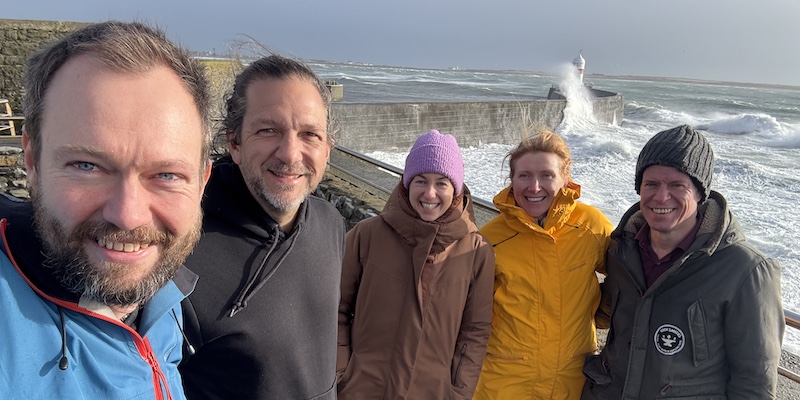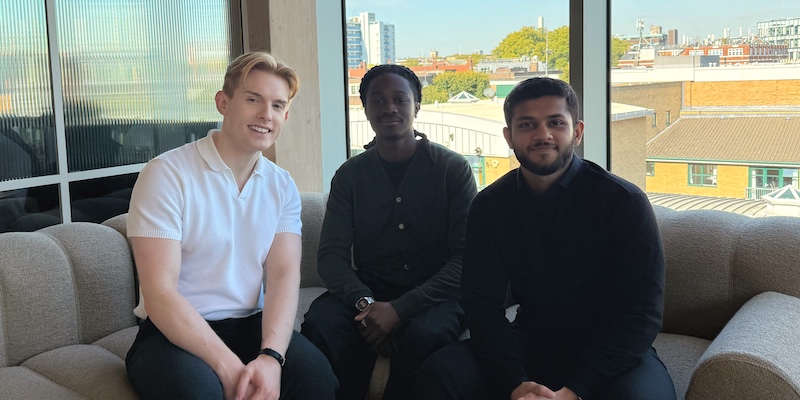
Applying technology to the world’s biggest problems
This is an excerpt from Melanie's interview with Soldo - which you can read in full here.
Is there not always a trade-off between good and bad in technology?
It’s really important to be aware of the unintended consequences of the technology that you’re developing. It’s one of the things we talk about to our ventures very early on.During our initial intensive support program that all our ventures go through, we actually run a consequence-scanning workshop, where we talk start-ups through frameworks which will help them to gain a better understanding of their customers; using a lean approach to develop a product that their customers love and really value. But the process also forces them to think about who else might be impacted by the proposition or by the changes they are trying to create in their industry or the value chain.In our most recent quarterly reporting, we also asked our portfolio to report on which unintended consequences they had identified in their products and services, and then what steps, if any, they were taking to mitigate or manage them.But I do think that if you’re intentionally aiming to reduce inequality, increase access to opportunity, and have a positive social or environmental impact; then I think you’re less likely to see the significantly negative, unintended consequences. Our ventures are not immune to that weakness, but I think they’re more switched on about it than most.
Give me some examples – what does “healthier lives, building a better society, developing a more sustainable planet” look like at startup stage?
In health, Second Nature is an app which helps particularly those who are diagnosed as pre-diabetic to adopt positive habits and lifestyle changes that help them to achieve weight loss and avoid developing type 2 diabetes; which is a huge burden to the NHS and a cause of immense pain to patients. They raised a seed round 18 months ago (led by Connect Ventures) and have just announced a Series A (led by Beringea). This really goes to show that tech for good represents a major market opportunity and can attract investment from backers who don’t necessarily identify as impact investors.In sustainability, LettUs Grow have developed a software and hardware proposition using aeroponics technology for growing food in vertical farms. Their technology shows improved yields, but also reduces the use of chemicals and water. They’re a really exciting business, based out in Bristol, and growing rapidly, having just closed a seed round led by Longwall Venture Partners. When experts say that we probably have less than 100 harvests left in our soils, because they’re so degraded from farming techniques, that’s scary. These are really big issues when you extrapolate them out across 20+ years.One of our most recent ‘better society’ ventures is Musemio; who have developed some great cultural and interactive VR experiences for kids. They’ve partnered with a number of brilliant museums, to bring their collections to life and provide access to cultural education for children who don’t necessarily have ready access to those experiences; whether that’s for physical/geographical reasons or affordability reasons. There is a wealth of evidence that exposure to these types of experiences improves learning across the academic spectrum – not just cultural, but Maths and English too,
You use the cohort model, beloved of accelerator organisations for many years, and of course still championed by Y-Combinator. What’s the process?
That model really works for our strategy because it genuinely adds value to the start-ups we work with at such an early stage. Our 12-week intensive support program runs twice a year, roughly in the spring and the autumn, and each cohort welcomes around 10 ventures.In order to get to those 10 ventures, our open call generally produces about 200 qualified applications, which are whittled down to around 40 face-to-face interviews, and then we make offers to about 10. To source the initial applications, we purposefully promote widely to reach as many interesting and diverse founders as we can.The content covers everything from sales to strategy to impact measurement to hiring and building an organisational culture, fundraising etc. There’s a strong emphasis on lean, user-centred approaches, as these businesses are typically still working out exactly which part of a problem they are trying to tackle, the nature of the proposition and how they’re going to demonstrate value to users and customers. We also facilitate introductions to a network of 90 mentors and over 200 founders in our portfolio. That ‘hive mind’ means there’s always someone who’s “been there, seen it, and done it” – a wealth of practical knowledge.
What counts as success for BGV? And how do you measure that nurturing process?
When we’re looking at a potential investment, we’re asking: is this a big and important enough problem, with a strong enough solution that in eight to ten years’ time, this team could address that problem in such a way that they could have built a business worth over £100 million and positively impacted the lives of millions of people.Impact metrics shouldn’t be a sideline or an afterthought, but we’re still interested in monthly recurring revenues, growth rates and user engagement. How much repeat use of the service are you seeing? If it’s B2B, what’s the sales process looking like? Is it repeatable? Are you seeing an increase in conversions, a reduction in the length of the sales cycle or an increase in contract value?Then, what’s the impact you’re achieving with your users, and are you measuring that too? So, for example, we mentioned Second Nature, the behaviour change app, earlier. Yes, we look at their monthly active users, but we also look at the average weight loss for each of those active users; and how long they have sustained that weight loss. Because we know that that’s a key driver of whether they are successful in avoiding developing Type 2 diabetes.Read the full interview here. If you're interested in joining the BGV programme in September, then find out more and apply.





